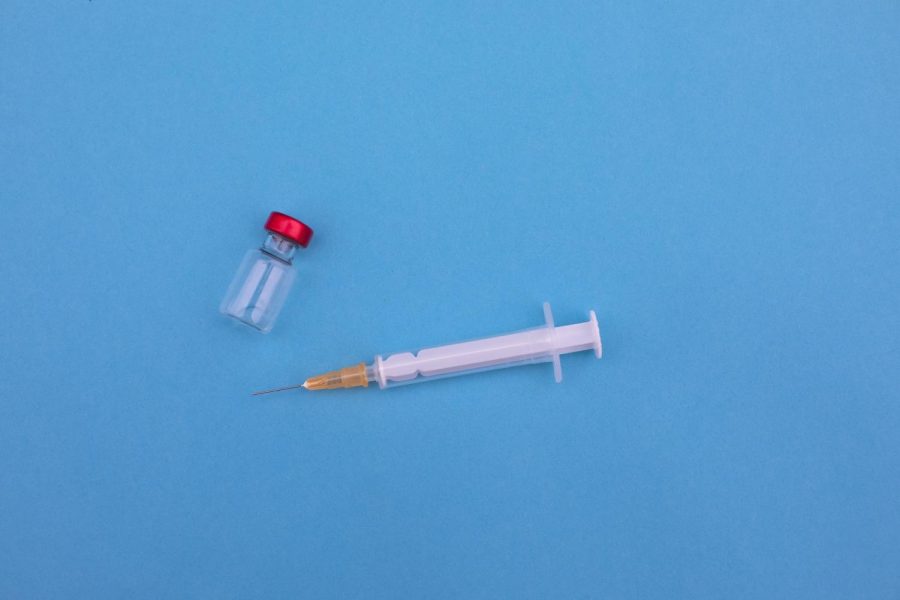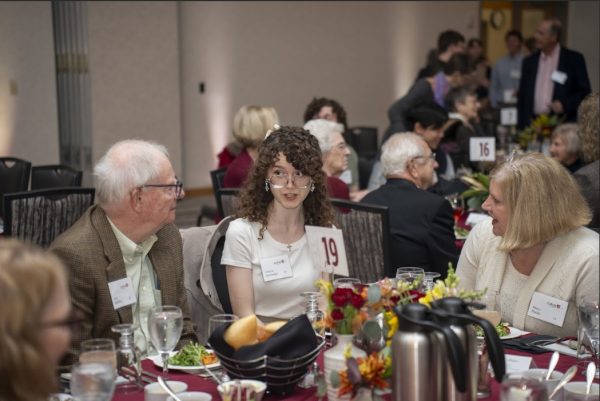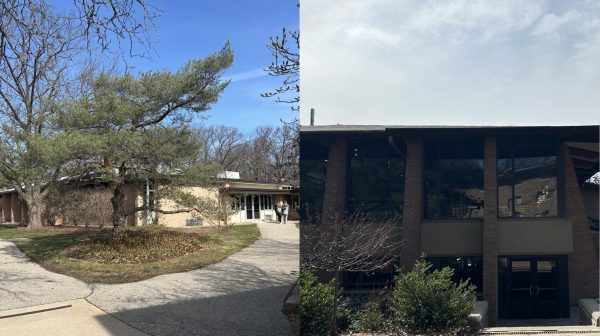Ask an immunologist: Prof. Shen on five vaccine myths
Misinformation about COVID-19 is plentiful, and it’s especially concentrated when it comes to the vaccine. Opinions on the vaccine range from full-hearted approval to skeptical hesitancy to outright protest.
Chimes spoke with Professor Anding Shen of the biology department to get an immunologist’s perspective on five popular misconceptions about the vaccine.
Myth: Young healthy people (like college students!) don’t need to worry about COVID and therefore shouldn’t get vaccinated.
Shen: Not very many college students die from COVID, true. But how about not being able to smell or taste for the rest of your life?
If we let the virus take its course, it will generate more and more variants—it’s just what viruses do. If that happens, things are going to get a lot worse. Look at India right now: they are having a devastating second wave, and the overall symptoms and severity of the disease have increased. So even if the first variant is not a big deal for people, the later variants might be. These variants have survival advantage, replication advantage, and then will overtake the old strains.
If we stop transmitting, we stop the replication of the virus. If we stop the replication, we stop viral evolution. But if we let it run its course, then it’s a potential that it will elude the vaccines, too. There’s a whole pile of risky outcomes, and the only way to prevent them is to get transmission to zero.
And scientists are not trying to make up these things to scare you! Why would they? We just want to keep everyone safe.
Myth: You might get COVID from the vaccine.
Shen: There is no chance of this. In order to get COVID, you need to have the virus. None of the vaccines that have been approved contain the virus—they only have one protein from the virus. The one protein is only a tenth of the virus. It can’t do anything with that one tenth. You need the whole robber to commit the crime—just having the hand isn’t going to work.
Myth: The Johnson & Johnson pause is evidence that vaccine hesitancy is warranted.
Shen: For the J&J vaccine, one out of one million people have gotten a blood clot. If you actually are infected with COVID-19, 39 out of one million get blood clots. Which one would you rather have?
In everything we do, we need to weigh the costs and benefits. If no one gets the vaccine, the death toll will be much higher than the very small number of people who have had complications from the vaccine. I don’t deny that there are potential risks—there are, but they are just very small.
Myth: Exercise and eating healthy are the best protection against COVID.
Shen: All kinds of people die from [COVID]. We don’t know why some people have severe reactions and some don’t. We know it has to do with people’s immune system. In fact, some people’s immune systems [when they have COVID] are actually overreacting and going into overdrive. So, if you have a really robust immune system, you might not actually fare very well—your immune system may go into overdrive.
Anybody can develop pretty potentially severe symptoms. By all means, exercise and live a healthy lifestyle. But the vaccine is still your best bet to protect against COVID. They are not even comparable preventative measures. Again, the vaccine is proven to be very effective and very safe.
There is also really careful monitoring of symptoms, and doctors now know how to treat the blood clots. They aren’t treated like normal blood clots; they are pretty rare. So now that they are aware of that, doctors know how to treat them right.
Myth: The vaccine is experimental and still in the trial stage. It hasn’t been officially approved, and we should wait until it is to get the vaccine.
Shen: True. It’s still in emergency approval. But it’s gone through rigorous testing. And we have such strong monitoring systems. That we can even say that one in a million individuals have developed a blood clot is proof of a strong and successful monitoring system. This should give us confidence that if [negative vaccine reactions] happen, they will show up in the monitoring system.
I believe we have a very trustworthy system—is it 100% safe? No, nothing is. You can trip and fall on your walk outside; you can get into a fatal car accident. There is nothing absolutely safe. You just have to weigh the benefits versus the risk and make the most educated decisions you can.







